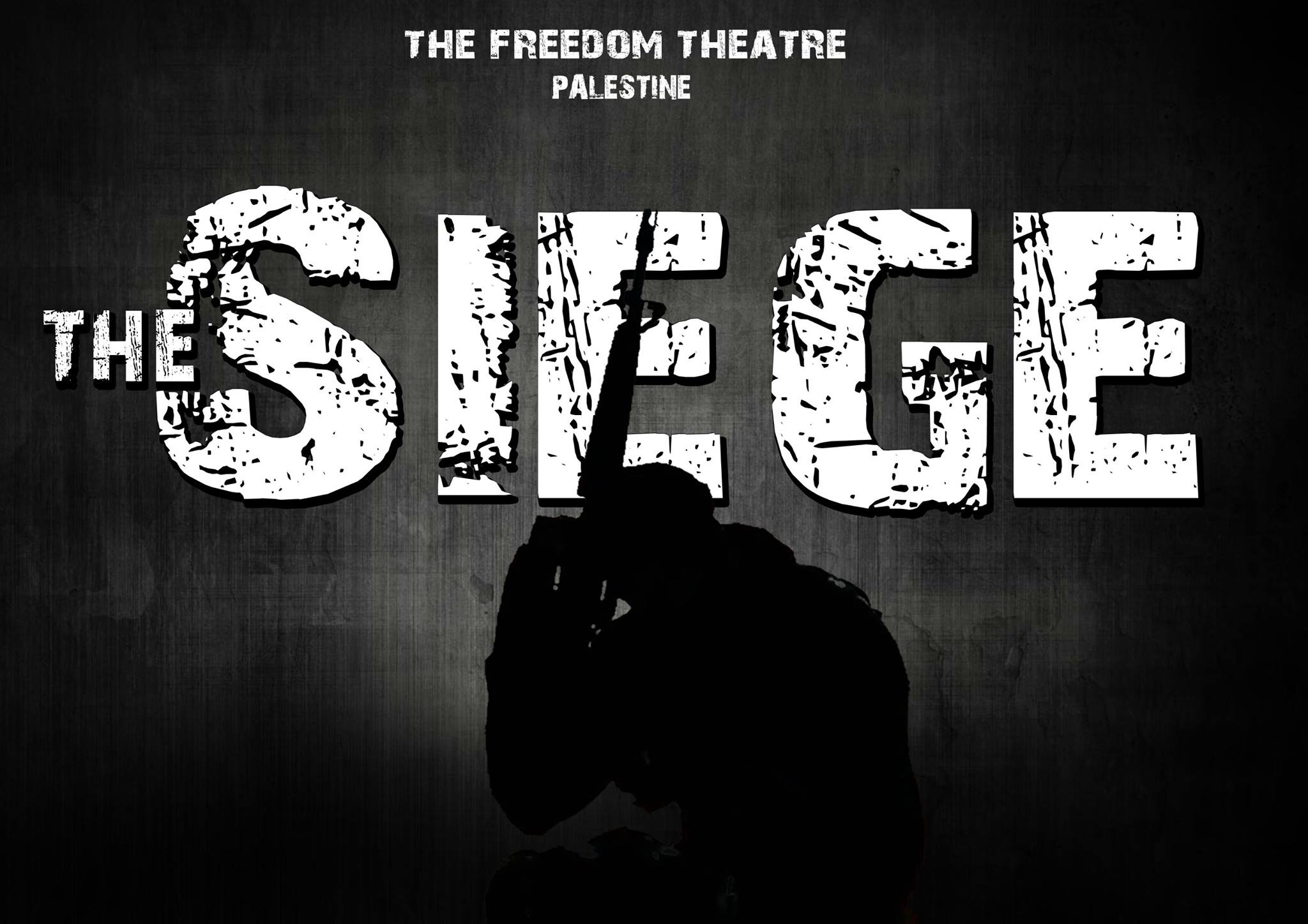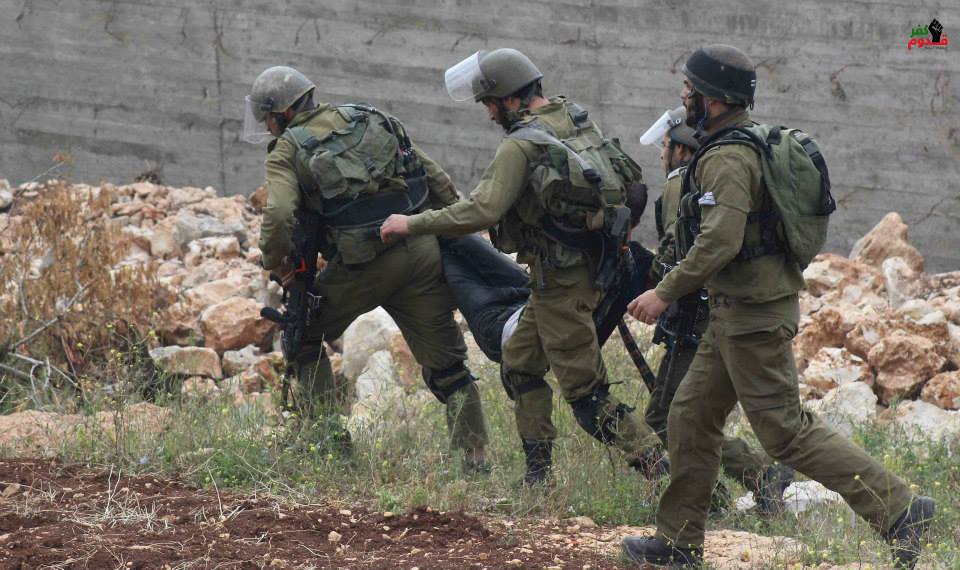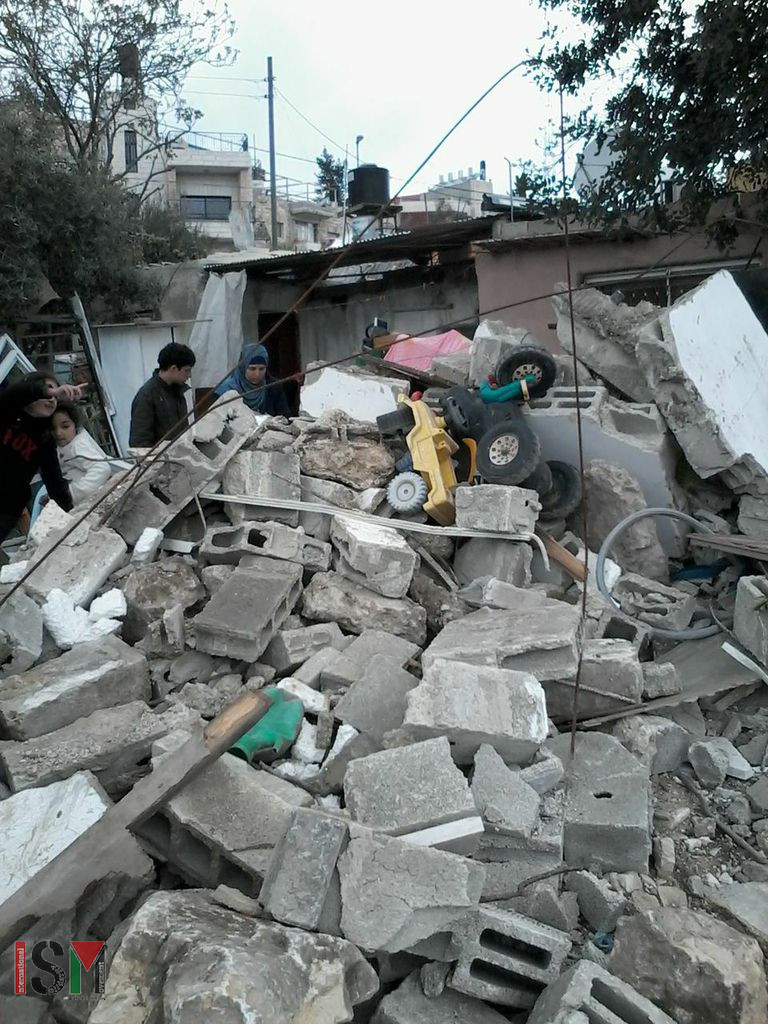Author: ISM Media
-
The Siege – cultural resistance in Palestine
20th April 2015 | Frida and Jenny | Jenin, Occupied Palestine The room was overflowing with people who had come to witness the opening of the play The Siege. Pushing our way through the throng we managed to find some seats, squashed in the middle of a diverse and lively audience. We were sitting in…
-
Israeli forces shot five in Kafr Qaddum
17nth April 2015 | International Solidarity Movement, Huwwara Team | Kafr Qaddum, Occupied Palestine This week’s Friday demonstration in Kafr Qaddum followed the same violent pattern as the previous ones during the past weeks. The Israeli occupation forces began their shooting before the demonstration even started. Soldiers and border police fired tear gas, stun grenades, rubber-coated steel bullets and live ammonition…
-
House-demolition scheduled for Wadi al-Joz – Families call for support
18th April 2015 | International Solidarity Movement, Team Al Khalil | East Jerusalem, Occupied Palestine The Amro and Tohta families in the occupied East Jerusalem Wadi al-Joz neighbourhood are calling for international presence on Sunday, April 19. The Tohta family received a demolition-order for their house and were warned that the demolition will take place on…



